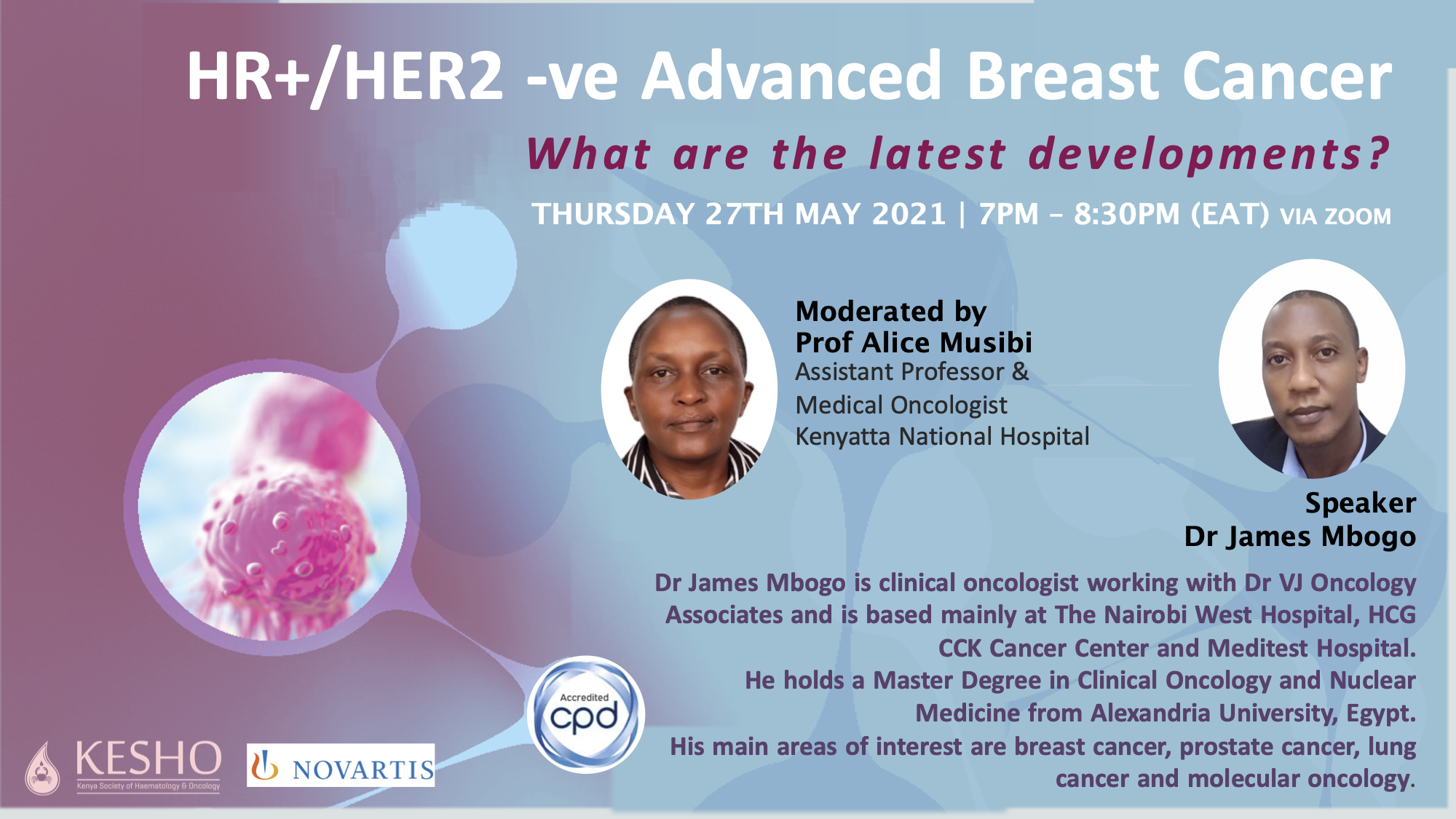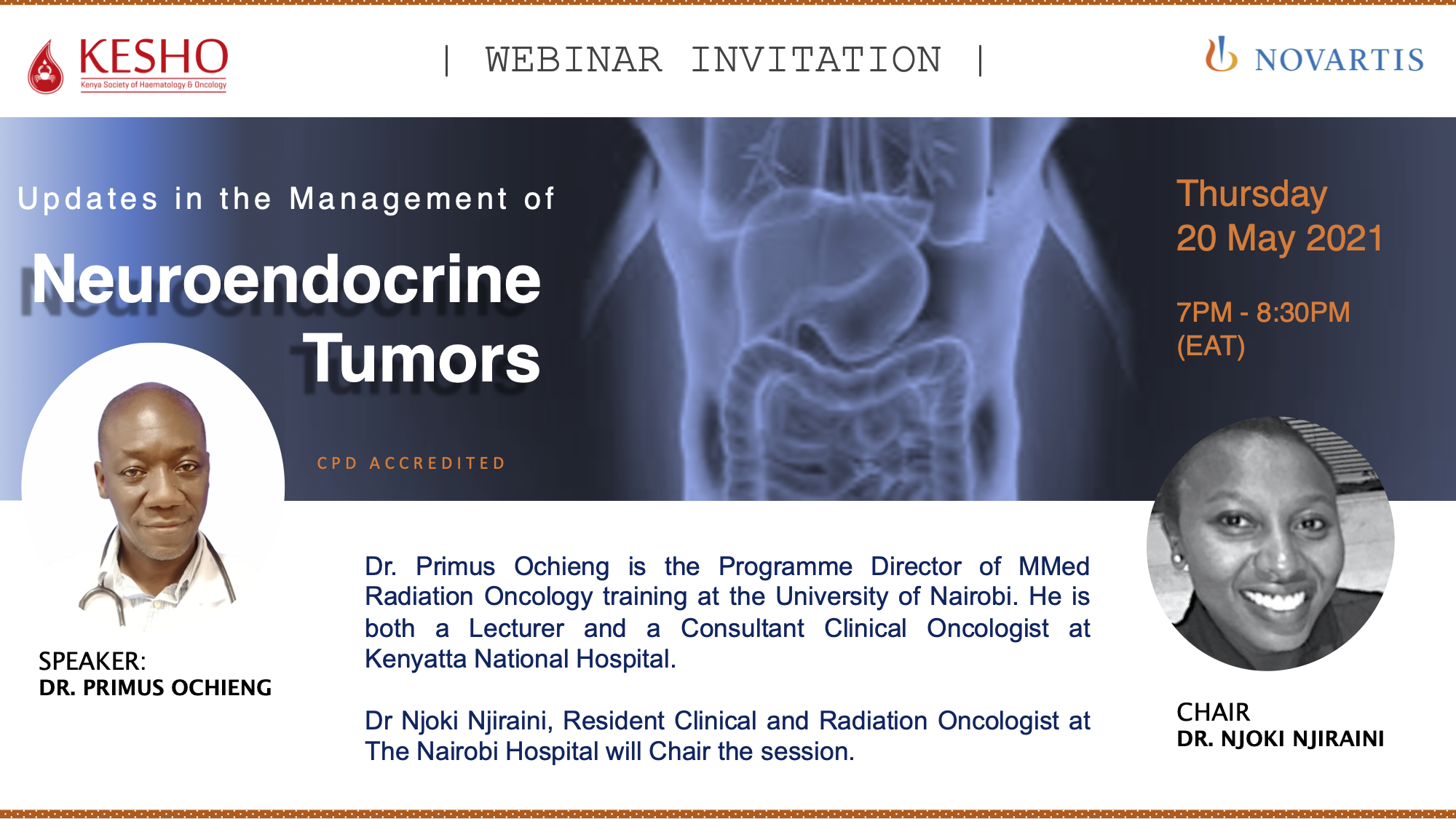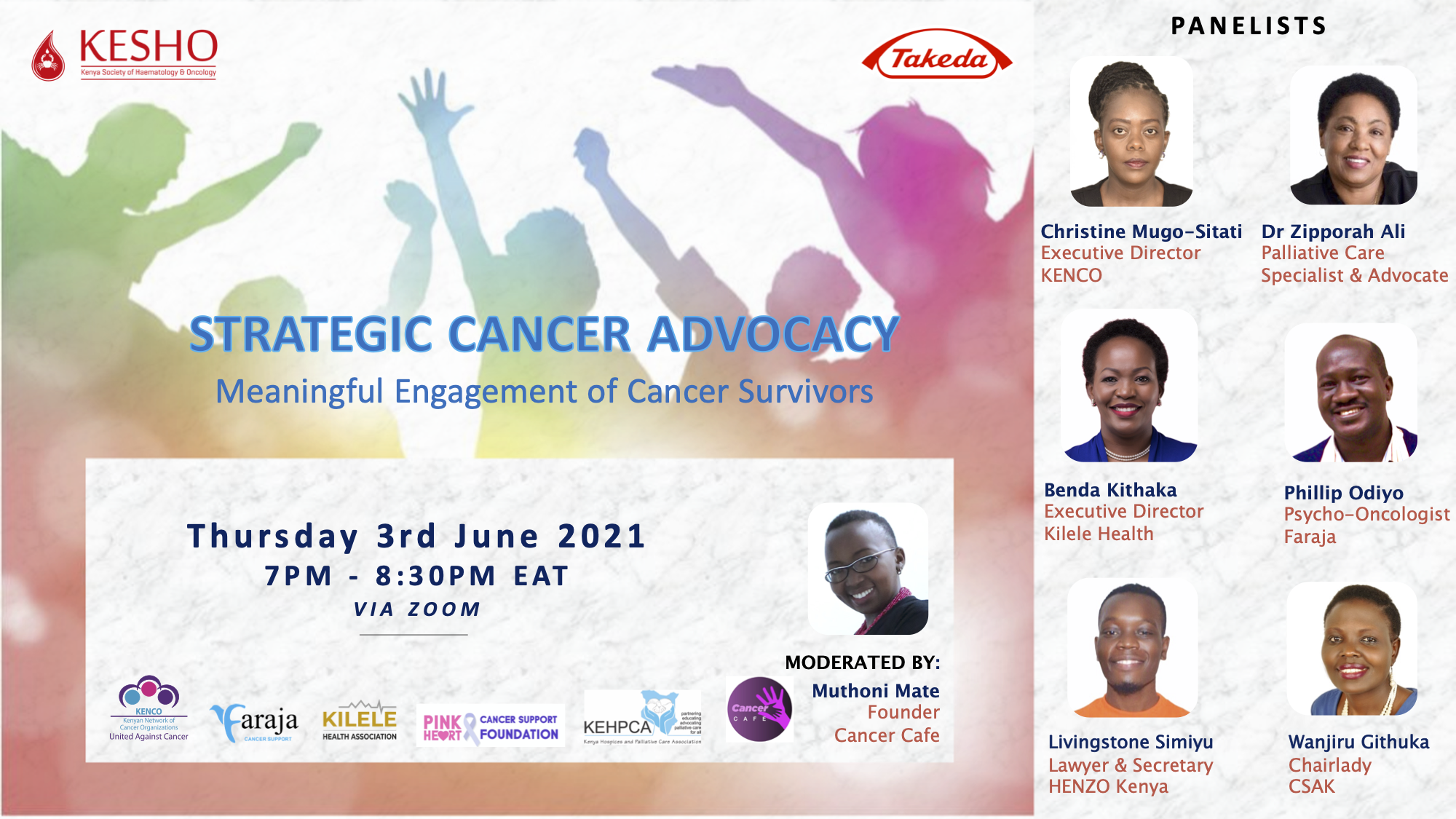
- This event has passed.
HR+/HER2-Ve Advanced Breast Cancer
Event Navigation

Moderator: Prof Alice Musibi, Assistant Professor and Medical Oncologist, Kenyatta National Hospital
Sponsor: Novartis
Presenters:
- Dr. James Mbogo, clinical oncologist working with Dr. Vj Oncology Associates based at the Nairobi West Hospital.
Treatment choice for advanced breast cancer should take into account hormone receptor and HER-2 status and germline BRCA status of the patient, in addition to PIK3CA in HR+ and PD-L1 in TNBC patients. It’s important to consider the accessibility of targeted therapies, previous therapies, and their toxicities. Other important factors to consider include tumor burden, biological age, comorbidities, menopausal status, need for rapid disease/ symptom control, socioeconomic and psychological factors, available therapies, and patients preference. Endocrine-based therapy is preferred for hormone receptor-positive disease in patients with visceral disease. The presence of visceral crisis as a result of severe organ dysfunction can be determined by signs and symptoms, laboratory studies, and rapid progression of the disease. Its presence implies important visceral compromise; a clinical indication for a more rapidly efficacious therapy, particularly because another treatment option at progression will probably not be possible. For pre-menopausal women for whom endocrine therapy was decided, ovarian suppression/ablation (through surgery and radiation) combined with additional endocrine-based therapy is the preferred choice. Primary and secondary endocrine resistance after endocrine therapy is associated with various mechanisms. A CDK4/6 inhibitor combined with endocrine therapy is the standard of care for patients with ER+/HER-2 negative advanced breast cancers. The body composition parameters may influence prognosis in patients receiving CDK4/6 inhibitors, whose side-effects include bone marrow toxicities, liver enzymes, fatigue, pain, skin toxicities (rashes), vomiting, and neutropenia.
Webinar Recording

